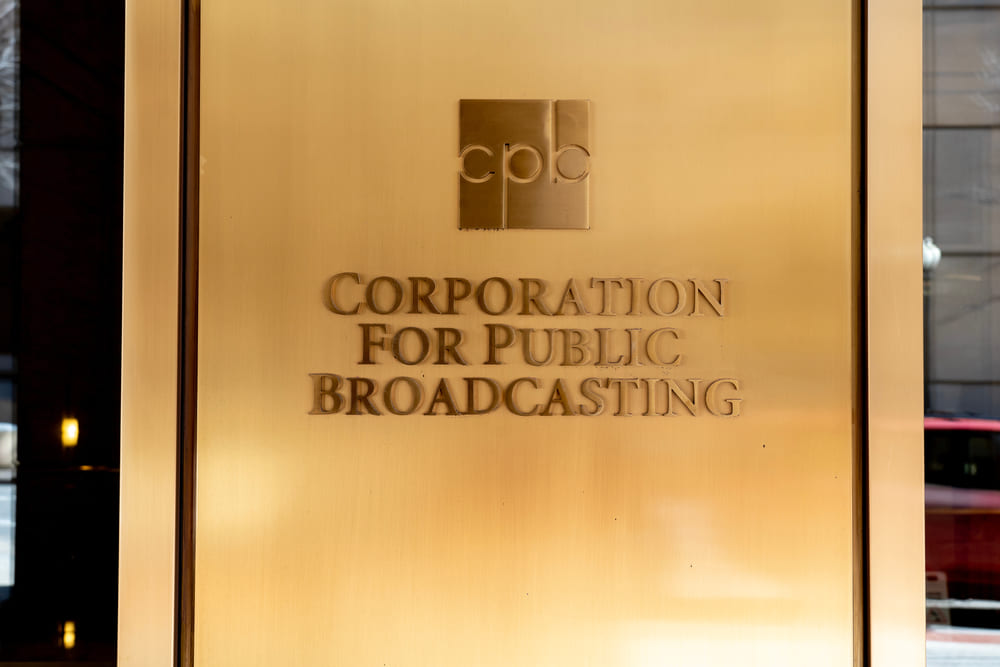On Thursday, US President Donald Trump signed a significant executive order aimed at reducing federal funding to two prominent public broadcasters, PBS (Public Broadcasting Service) and NPR (National Public Radio). The decision has sparked controversy, with the President accusing both outlets of spreading what he describes as “radical, woke propaganda disguised as news.”
The Executive Order
The executive order instructs the Corporation for Public Broadcasting (CPB) and other related federal agencies to cease funding for NPR and PBS. It also directs them to investigate and eliminate any indirect financial support these news organizations might receive from the federal government. The White House highlighted in a social media post that these broadcasters receive millions of taxpayer dollars, which the administration claims is used to promote biased reporting.
This move is part of a broader pattern of the Trump administration using federal powers to target institutions and organizations that it believes do not align with its policies or viewpoints. The President has long been critical of PBS and NPR, accusing them of liberal bias in their coverage.
Background and Impact
PBS and NPR collectively receive approximately half a billion dollars annually in federal funding through the CPB. These funds support a variety of programming, including educational content, documentaries, and children’s programming. However, Republicans, including Trump, have been critical of these organizations for years, arguing that taxpayer money should not fund what they view as politically biased media outlets.
Paula Kerger, the CEO and president of PBS, has defended public media, calling it an essential service for American society. In a statement released last month, Kerger said that the Trump administration’s efforts to rescind funding would severely disrupt PBS and the services it provides to millions of American families. “There’s nothing more American than PBS,” Kerger said, emphasizing the bipartisan support that the network has historically enjoyed from Congress. She argued that public funding allows PBS to deliver high-quality educational content, helping prepare children for success in school and life.
Ongoing Legal Disputes
The CPB, which oversees federal funding for public broadcasters, has not taken this latest executive order lightly. Earlier this week, the Corporation filed a lawsuit against the President, accusing him of overstepping his authority when he fired three members of its five-person board. The CPB argued that the removal of board members would deprive the Corporation of the quorum needed to conduct essential business. The legal battle is ongoing, with the CPB seeking to reinstate the removed board members and halt any cuts to federal funding.
This legal action adds to the growing list of disputes between the Trump administration and public media institutions. The White House’s attempts to reshape public broadcasting have already faced pushback in federal courts, where some rulings have found that the President’s actions overstep the powers granted to him by Congress. These judicial setbacks have complicated the administration’s efforts to impose its will on independent news organizations like PBS and NPR.
The Wider Context: Cuts to the Arts and Education
The push to cut funding for PBS and NPR is not an isolated move. Since taking office, President Trump has sought to reduce federal spending on a wide range of public services, including education, arts, and culture. His administration has made efforts to defund institutions like the National Endowment for the Arts (NEA), the John F. Kennedy Center for the Performing Arts, and various educational programs.
In addition, the Trump administration has sought to limit funding for universities that promote diversity programs or initiatives that the President views as contrary to his policies. These actions align with Trump’s broader agenda of reducing the scope of federal government influence in sectors that he believes are biased or counterproductive.
The Larger Picture: Global Media and Free Press
The cuts to PBS and NPR are part of a larger effort by the Trump administration to reshape media and news organizations in the US. His administration has been working to dismantle the US Agency for Global Media (USAGM), which oversees independent broadcasters such as Voice of America and Radio Free Europe/Radio Liberty. These organizations are critical for promoting free press and independent journalism in countries with restricted media access.
The administration’s actions have sparked concern among journalists, lawmakers, and citizens who fear that these moves could undermine the integrity of free speech and the press. The White House has argued that such organizations are often too liberal and out of touch with mainstream American values, prompting efforts to rein in their influence.
Congressional Response and Future Implications
In a broader move, the White House has suggested that Congress rescind funding for the CPB as part of a larger budget package. However, this package has yet to be submitted to Capitol Hill for review. Budget director Russell Vought indicated that the cuts would be part of a multi-step process, but it remains unclear how much support such proposals will receive from Congress.
The ongoing fight over funding is likely to continue, with Congress playing a pivotal role in whether Trump’s efforts to cut funding will succeed. Many lawmakers from both parties have expressed concern over the long-term effects of such cuts on public media and the cultural landscape.
The Future of Public Media
For now, PBS, NPR, and other public broadcasters are continuing to face challenges as they work to secure their funding and defend their independence. While the Trump administration pushes for cuts, public broadcasters remain steadfast in their mission to serve the American public through high-quality programming, educational content, and news.
Whether these outlets will be able to weather the storm of federal funding cuts remains to be seen, but the ongoing legal challenges and political debates highlight the critical role that public media plays in American society. As the battle over funding continues, the future of public broadcasting in the US remains uncertain.


